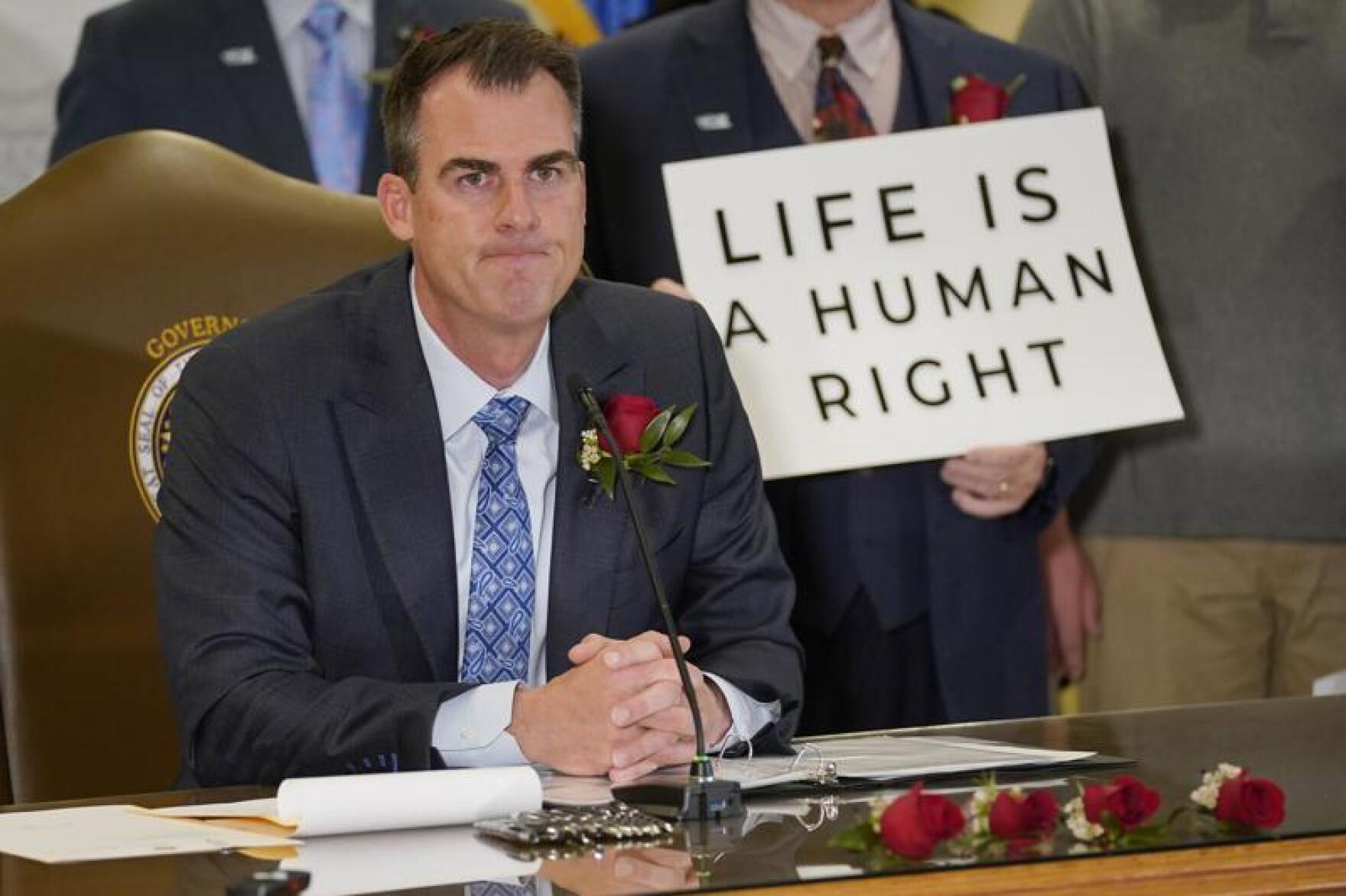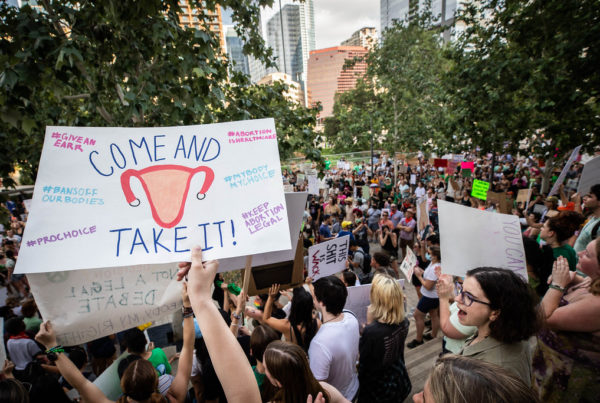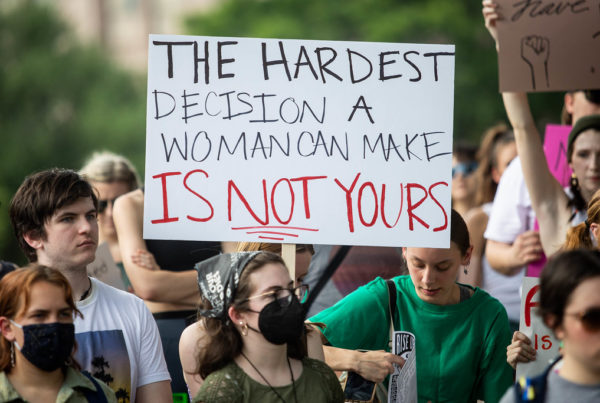From The Texas Newsroom:
Oklahoma Gov. Kevin Stitt on Tuesday signed a Republican-backed bill modeled after Texas’ law banning abortions as early as six weeks into pregnancy. It took effect immediately.
He already signed a bill into law last month making it a felony to perform an abortion with one exception. Another measure still making its way through that state’s legislature bans all abortions, except in certain cases like rape or incest.
This comes as the U.S. Supreme Court — which has a conservative majority — could soon overturn the 1973 landmark Roe v. Wade decision legalizing abortion nationwide.
For now, Seema Mohapatra, a visiting professor of law at Southern Methodist University in Dallas, said Oklahoma’s new Texas-style law won’t just affect that state’s citizens, but will also impact Texans seeking to have the procedure.
“Oklahoma abortion care providers were reporting that many of their patients were Texas residents after SB 8 [Texas’ abortion law] passed, and they had an increase in the number of patients that they were seeing,” Mohapatra said. “And so, in terms of the proximity between Oklahoma and Texas, that access is now cut off as well.”
According to researchers with the Texas Policy Evaluation Project, nearly half of the Texans who traveled out of state to get an abortion between September and December 2021 obtained the procedure in Oklahoma after Senate Bill 8 took effect Sept. 1.
TxPEP’s research also showed that a large number of Texans traveled to Arkansas, Colorado, Kansas, Louisiana, Mississippi and New Mexico for out-of-state abortions as well. That’s an average of about 1,400 Texans per month.
The only enforcement mechanism for Texas’ law is allowing private citizens to sue anyone involved in helping someone get the procedure. Oklahoma’s new law has a similar provision.
Meanwhile, as the nation awaits a decision on Roe, Mohapatra expects more states will try to pass similar Texas-style measures as well as other bills that lessen access to abortion.
“With the leaked opinion, states are going to be even more aggressive in the kinds of anti-abortion legislation that they’re going to pass because they know that a decision is forthcoming that is going to overturn Roe. v. Wade,” said Mohapatra.
RELATED: Understanding the Texas ‘trigger law’ that would ban abortion if Roe v. Wade is overturned
A federal appeals court recently ended a lawsuit from abortion providers seeking to overturn Texas’ abortion law by instructing a lower district to dismiss all charges.
Abortion providers, including Whole Woman’s Health and Planned Parenthood, had sued over an enforcement aspect of Texas’ six-week abortion ban.
At issue was whether Texas medical licensing officials could punish physicians who violate the law since they were the only defendants allowed to be left in the lawsuit by the U.S. Supreme Court in a December ruling. But, the Texas Supreme Court later ruled in March that those officials did not have the authority to enforce the ban.
“So, there’s no one to sue,” Mohapatra said. “There’s no kind of repercussions for that rule, and other states are seeing that and copying it.”
Idaho was the first state to pass a Texas-style abortion ban, and it was signed into law by that state’s governor in March. It was set to go into effect last month, but Idaho’s Supreme Court temporarily blocked the law as legal challenges there proceed.
















